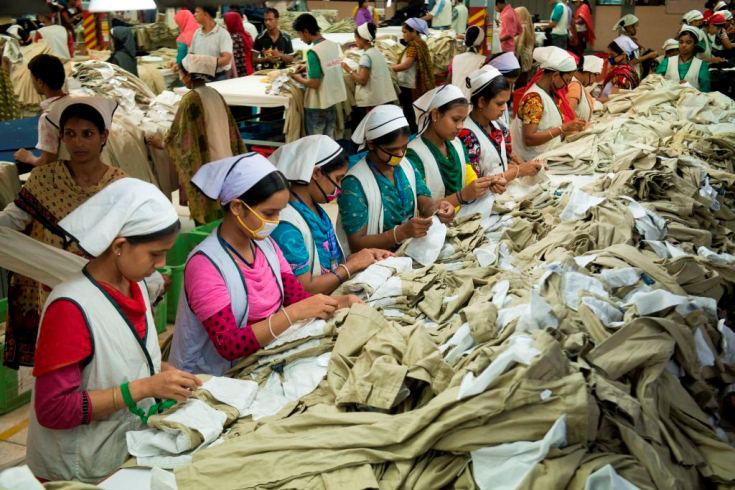Bangladesh RMG makers strengthen family planning service provision
DHAKA, Feb. 17 (NsNewsWire) — A tripartite Memorandum of Understanding (MoU) has been signed among Directorate General of Family Planning (DGFP), Bangladesh Garment Manufacturers and Exporters Association (BGMEA) and EngenderHealth Bangladesh (EHB) at BGMEA Conference Room, BGMEA building, Karwan bazar, Dhaka.
The purpose of this MoU is to strengthen family planning service provision within the premises of garment factories. The specific objectives are: (a) to ensure DGFP family planning commodities and other applicable services available within the readymade garment factories (b) to improve knowledge on family planning information and services among the garment workers. Mr. Mohammad Wahid Hossain ndc, Director General, Directorate General of Family Planning, Mr. Mohammad Nasir Vice President (Finance), BGMEA, Dr. Abu Jamil Faisel, Project Director, MH-II & Country Representative/ED, EHB and high officials from DGFP, BGMEA, EHB and development partners were present in the event.
Under this MoU, DGFP would supply family planning logistics and commodities to garment factories based on the requirement and under a simple indent procedure and will also support with Imprest fund/financial assistance to the clients as per DGFP rules. BGMEA on the other hand will provide support to the individual garment factory to place indent for required FP commodities to concerned Family Planning Office and will guide and monitor the garment level commodity distribution activities. EngenderHealth Bangladesh will provide training to clinical service providers working at garment factory clinics and will orient peers and garment workers and their supervisors regarding awareness raising on the use of contraceptives
Directorate General of Family Planning (DGFP) is devoted to reduce TFR, MMR, IMR in Bangladesh and likewise is committed to make family planning services accessible for all. DGFP contribution in family planning activities has reduced TFR at 2.3 and increased CPR at 62.4 from the level of 6.3 and 8 in 1975 respectively. Moreover, the contribution of family planning in reduction of maternal mortality is 34%. Under this MoU, DGFP will supply family planning contraceptives and other commodities directly to readymade garment factories which would help garment workers get FP commodities in the factory premises. DGFP hopes that this will help in increase of family planning users and in reduction of unwanted pregnancy among the workers and also help business in many ways.
Bangladesh Garment Manufacturers and Exporters Association (BGMEA) is a platform of around 4,300 readymade garment factories where 5.4 million workers are employed of whom 70% are women and the population are at high risk of unwanted pregnancy caused by lack of information and access to family planning services particularly use of long acting reversible contraceptive and permanent method (LARC&PM) uptake is very low among the factory workers. The factory workers have little or no time to visit BGMEA clinics or nearby facilities for obtaining family planning methods and garment factories also find difficulties to allow their workers during production hours. So, this MoU is very instrumental to provide family planning services as per workers’ need and convenience.
EngenderHealth is a locally registered international women’s health organization supporting the rights of women worldwide to decide whether, when and how many children by ensuring Informed Choice and Volunteerism (ICV) to have by promoting local and sustainable solutions to healthcare. EngenderHealth Bangladesh implements the Mayer Hashi-II project funded by the United States Agency for International Development (USAID) in collaboration with the Directorate General of Family Planning (DGFP) and Directorate General of Health Services (DGHS) to reinvigorate the use of long-acting reversible contraceptives (LARCs) and permanent methods (LARCs & PMs) in Bangladesh. Because of this MoU, EngenderHealth Bangladesh would remain vigilant to provide technical support to strengthen the capacity of the garment factories in terms of clinical training for the providers, awareness building and demand generation support to increase users of family planning among factory workers.
